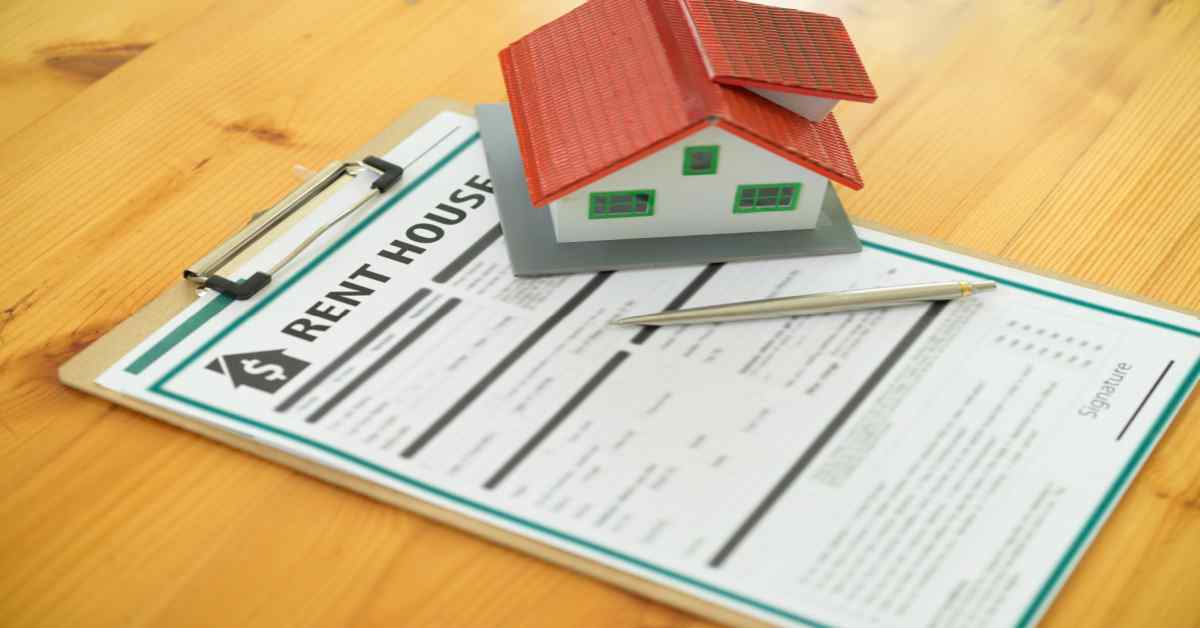Table of Contents
Quality Service Guarantee Or Painting Free

Get a rental agreement with doorstep delivery

Find the BEST deals and get unbelievable DISCOUNTS directly from builders!

5-Star rated painters, premium paints and services at the BEST PRICES!
Loved what you read? Share it with others!


Submit the Form to Unlock the Best Deals Today
Help us assist you better
Check Your Eligibility Instantly

Experience The NoBrokerHood Difference!
Set up a demo for the entire community
Landlord Duties: Legal Rights and Obligations of Landlord and More
Table of Contents
Landlord duties are at the heart of the property rental world, shaping how property owners and tenants work together. A landlord is someone who owns a property, whether it's a house, a shop, or something else and rents it out to someone else. However, being a landlord is more than just owning property; it involves a range of jobs, legal duties, and rights that are super important for making sure the renting process goes smoothly.
Knowing about these duties is crucial, not just to follow the law, but also to keep a good relationship with your tenants. From looking after the property to sticking to the rental agreements and dealing with tenants, a landlord's duties are varied and important. In this blog, we will discuss all the landlord duties to smoothen your journey as a homeowner.
Defining a Landlord
A landlord, in the broadest sense, is an entity that owns the property and leases it to another party, known as a tenant. This definition encompasses a diverse range of individuals and organisations, each with their unique motivations and types of properties under management.
Quality Service Guarantee Or Painting Free

Get a rental agreement with doorstep delivery

Find the BEST deals and get unbelievable DISCOUNTS directly from builders!

5-Star rated painters, premium paints and services at the BEST PRICES!
Different Types of Landlords
There are different types of landlords, each with a unique way of managing properties. Both tenants and landlords need to understand these differences to have a good landlord-tenant relationship. The different kinds of landlords are:
Individual Investors
These are private individuals who own property and rent it out. They might have purchased a property as an investment to generate rental income or as a part of their retirement plan. Their approach to property management is often more personal and hands-on. For example, a retired couple might own a single-family home that they rent out, managing everything from tenant screening to maintenance themselves.
Real Estate Corporations
These are companies whose primary business is owning and managing rental properties. They might own a diverse portfolio of properties, including large apartment complexes, commercial buildings, and even special-purpose spaces like storage units. Their approach is typically more systematic and professional. An example would be a corporation that owns multiple apartment buildings in a city, employing a team of property managers, maintenance staff, and leasing agents.
Government Agencies
These agencies primarily deal with affordable or social housing. Their focus is on providing housing solutions for lower-income families, seniors, or those with special needs. The management style here is governed by policy and regulations, aiming to balance public service objectives with efficient property management. An example is a municipal housing authority that manages several housing projects across a city, offering rent-based-on-income apartments.
Types of Properties a Landlord Might Own
The range of properties managed by landlords is as diverse as their backgrounds. These can include
- Residential Properties: This category is the most common and includes single-family homes, apartments, duplexes, and townhouses. Residential landlords provide housing for individuals and families, and these properties can range from basic to luxury accommodations.
- Commercial Properties: Landlords in this category own and manage spaces used for business purposes. This can include office buildings, retail spaces, warehouses, and industrial properties. The management of commercial properties often requires a more complex understanding of business needs and market trends.
- Vacation Properties: These are properties rented out for short-term leisure stays. Examples include beach houses, cabins, and condos in tourist-centric locations. Landlords in this sector must be adept at marketing to tourists and providing amenities that align with vacation experiences.
- Mixed-Use Developments: These properties combine residential and commercial spaces, offering a blend of living spaces, shops, and offices. Landlords managing these properties need to balance the diverse needs of their residential and commercial tenants.
- Specialised Properties: This includes unique property types like student housing, senior living facilities, or properties with historical significance. Each type demands a specific set of skills and knowledge from the landlord, about the unique requirements and regulations of these properties.
Landlords play a critical role in the property market, offering a variety of living and business spaces to meet the diverse needs of society. Their responsibilities and the types of properties they manage are vast, demanding a thorough understanding of both legal obligations and market dynamics.
The Role of a Landlord
Being a landlord is not just about owning property; it's a role that comes with a set of crucial responsibilities and significant potential for financial returns. At its core, the role of a landlord is multifaceted, encompassing the diligent maintenance of property, ensuring compliance with lease agreements, and effectively managing a property as a valuable asset.
Ensuring Property Maintenance
One of the primary landlord's responsibilities is the upkeep and maintenance of their property. This goes beyond mere cosmetic fixes; it involves ensuring that the property remains habitable and safe for tenants.
Regular maintenance tasks include addressing structural issues, ensuring efficient plumbing and electrical systems, and promptly responding to repair requests. This responsibility is vital not only for the well-being and satisfaction of tenants but also for adhering to legal health and safety standards. Landlords must be proactive in preventing deterioration of the property, as neglect can lead to more significant problems and financial losses in the long run.
Adherence to Lease Agreements
Another critical aspect of a landlord's role is the adherence to lease agreements. These contracts are not mere formalities; they are legally binding documents that outline the expectations and obligations of both the landlord and the tenant. A landlord must ensure that the terms of the lease are clear and fair, and more importantly, that they are upheld.
This includes but is not limited to, respecting the tenant's privacy, ensuring fair handling of security deposits, and providing the necessary notices in the event of lease termination or rent adjustments. Landlords need to be well-versed in the local tenant-landlord laws to avoid legal pitfalls.
A Source of Income and Property Appreciation
Beyond the day-to-day responsibilities, being a landlord is a strategic role in financial investment. Renting out property is a way to generate a steady income stream. This rental income can be a significant contributor to a landlord's finances, often covering the costs of the mortgage, property taxes, and maintenance, with the profit potential.
Additionally, real estate is a valuable asset that generally appreciates over time. This means that landlords can benefit from the increase in property value, giving them the opportunity for substantial financial gain when they choose to sell. Savvy landlords view their properties not just as buildings, but as long-term investments that can yield considerable returns.
The role of a landlord is complex and demands a balance of practical skills in property management and a strategic approach to real estate investment. It's a role that, when performed with diligence and foresight, can be both rewarding and profitable.
Legal Rights and Obligations of Landlords
Landlords, pivotal players in the property rental sector, are bestowed with specific legal rights and face a spectrum of obligations. These rights and duties not only ensure a fair transaction between landlords and tenants but also uphold the integrity of the rental market. It's important to note that these can vary depending on the state, and non-compliance can lead to legal consequences.
Legal Rights as a Landlord
- Right to Collect Rent: Landlords are legally entitled to collect rent at intervals agreed upon in the lease agreement.
- Property Management Rights: They hold the authority to manage the property as they see fit, in compliance with local laws and regulations.
- Right to Evict Tenants: Under certain conditions, such as non-payment of rent or violation of lease terms, landlords can legally evict tenants.
- Right to Raise Rent: Subject to the lease agreement and local laws, landlords may increase rent, typically with proper notice to the tenant.
- Right to Access Property: Landlords have the right to enter the rented property for inspections, repairs, or emergencies, usually with prior notice to the tenant.
- Right to Retain Security Deposits: In cases of property damage or unpaid rent, landlords can use the security deposit to cover these costs, within the legal limits set by state laws.
- Right to Screen Tenants: Landlords can legally screen potential tenants through background checks, ensuring suitability for their property.
Legal Obligations of Landlords
- Maintaining Habitable Conditions: Landlords must ensure their properties meet health and safety standards, providing essential services like heat, water, and electricity.
- Conducting Landlord Responsibilities Repairs: They are responsible for carrying out necessary repairs to keep the property in a habitable state.
- Following Building Codes: Compliance with local building and housing codes is a legal requirement for all landlords.
- Handling Security Deposits Legally: This includes returning the deposit within a legally specified period after the tenancy ends, minus any legitimate deductions for repairs or unpaid rent.
- Providing Notice Before Entry: Except in emergencies, landlords must provide tenants with advance notice before entering the property, as defined by state laws.
- Adhering to Anti-Discrimination Laws: Fair housing laws prohibit landlords from discriminating against tenants based on race, gender, religion, national origin, disability, or family status.
- Legal Eviction Procedures: If eviction becomes necessary, landlords must follow the legal process, which typically involves providing notice and obtaining a court order.
Each state may have additional specific requirements or variations in these general rights and obligations. Failing to adhere to these legalities can result in penalties, legal disputes, and financial losses for landlords. Therefore, landlords must stay informed and compliant with the laws governing rental properties in their respective states.
Pros and Cons of Being a Landlord
Becoming a landlord is a decision that comes with its own set of rewards and challenges. On one hand, it offers financial gains and opportunities for portfolio diversification, while on the other, it demands a keen understanding of legal responsibilities and property management.
Advantages of Being a Landlord
- Steady Income Stream: One of the primary benefits of being a landlord is the ability to generate a steady income through rent. This can serve as a significant supplement to other sources of income or even become a primary income source.
- Property Appreciation: Over time, real estate typically appreciates. This means that the property you rent out could increase in value, providing you with a valuable asset.
- Tax Benefits: Landlords can often take advantage of various tax deductions, including property depreciation, maintenance costs, and interest on mortgages, which can reduce their taxable income.
- Equity Building: Each rent payment can contribute to paying off the property mortgage, gradually building the landlord's equity in the property.
- Inflation Hedge: Rental income can act as a hedge against inflation, as rent prices can be adjusted over time.
Challenges of Being a Landlord
- Maintenance Responsibilities: Landlords are responsible for maintaining the property, ensuring it remains in a habitable and safe condition. This includes regular repairs and responding to emergency maintenance issues.
- Legal Obligations: Landlords must navigate a complex web of legal requirements, including adhering to housing codes, lease agreements, and landlord-tenant laws.
- Risk of Tenant-Related Issues: Landlords face risks such as non-payment of rent, property damage by tenants, or legal disputes, which can be time-consuming and costly to resolve.
- Variable Income: Rental income can be inconsistent due to factors like vacancy periods between tenants or unexpected major repairs.
- Complexities of Property Management: Managing a property involves various tasks including tenant screening, lease negotiation, rent collection, and staying updated with real estate laws.
While being a landlord can be financially rewarding, it requires a commitment to responsible property management and an understanding of the legal landscape surrounding rental properties.
Legal Limitations on Landlords' Rights
When it comes to property management, landlords hold significant responsibilities and rights. However, it's crucial to understand that these rights are not absolute and are bound by legal limitations designed to ensure fairness and protect tenants.
This section delves into what landlords are legally prohibited from doing and highlights the significance of adhering to legal protocols and state-specific laws.
Prohibited Actions for Landlords
- Discrimination: One of the fundamental legal restrictions imposed on landlords is the prohibition of discrimination. Under laws such as the Fair Housing Act in the United States, landlords are forbidden from discriminating against potential or current tenants based on race, colour, religion, sex, national origin, disability, or family status. This means landlords cannot refuse to rent, impose different rental terms, or falsely deny the availability of a rental unit based on these protected classes.
- Improper Eviction: Another critical area where landlords' rights are limited is in the eviction process. Evicting a tenant is a legal process and must be conducted by specific procedures outlined by law. Landlords cannot forcibly evict tenants without a court order.
This includes practices like changing locks, removing tenant's possessions, or cutting off utilities to force a tenant out. Each state has its laws governing the eviction process, including valid reasons for eviction and the required notice period. - Unlawful Entry: Landlords must respect the privacy of their tenants. They are generally required to provide notice (often 24 hours) before entering a rented property, except in emergencies like a fire or significant leak. This law prevents landlords from entering a tenant's space arbitrarily or without proper notice.
Importance of Legal Compliance
- Avoiding Legal Consequences: Non-compliance with these legal limitations can lead to serious consequences for landlords, including lawsuits, fines, and damage to their reputation. Landlords need to be well-versed in the legalities of property management to avoid inadvertent violations.
- State-Specific Laws: Landlord-tenant laws can vary greatly from one state to another. These laws cover a range of issues, including security deposit limits, rent control, and tenants' rights. Landlords must familiarise themselves with the laws specific to the state where their property is located, as ignorance of these laws does not excuse non-compliance.
- Building Trust with Tenants: Following legal protocols is not just about avoiding penalties; it's also about building a trustworthy relationship with tenants. When tenants know that their landlord is compliant with the law, it fosters a sense of security and respect, leading to a more harmonious landlord-tenant relationship.
While landlords do have considerable rights in managing their properties, these rights are balanced by legal limitations intended to protect tenants and ensure equitable treatment. Understanding and adhering to these limitations is not only a legal obligation but also a critical component of successful and ethical property management.
Practical Aspects of Being a Landlord
Becoming a landlord is not just about owning property and collecting rent. It involves a myriad of practical responsibilities that require careful attention to ensure smooth operations and legal compliance. Among the most significant aspects of this role are understanding and managing notice periods for tenant eviction, timely property repairs, handling tenant complaints, and knowing the process for tenants to report landlord negligence.
Notice Periods for Tenant Eviction
One of the crucial responsibilities of a landlord is understanding the legal requirements around tenant eviction. This includes the necessary notice period that must be given before evicting a tenant. Typically, this period is determined by state laws and can vary significantly. In most cases, landlords are required to provide a 30-day notice for eviction, especially for month-to-month leases. However, this period can be shorter or longer based on the lease terms and the reasons for eviction.
Landlords need to familiarise themselves with their local laws to ensure they comply with these requirements. Evictions must always be handled legally and ethically, respecting the rights of the tenant.
Timelines for Repairs
Another vital aspect of being a landlord is ensuring that the property is maintained in a habitable condition. This includes addressing necessary repairs promptly. The law typically categorises repairs into two types: emergency and non-emergency. Emergency repairs, which might include issues like a broken heating system in winter or a significant plumbing leak, require immediate attention, often within 24 to 48 hours.
Non-emergency repairs should be addressed within a reasonable timeframe, generally 30 days. Landlords should establish a clear, responsive communication channel for tenants to report repair needs and have a network of reliable contractors to address these issues promptly.
Handling Tenant Complaints
Effective communication is key in managing tenant complaints. Landlords should have a formal process in place for tenants to raise concerns or complaints, whether it's related to the property, neighbours, or other issues. Responsiveness to these complaints not only helps in maintaining a good landlord-tenant relationship but also ensures that issues are resolved before they escalate. A proactive approach to regularly checking in with tenants can also preempt many common issues.
Reporting Landlord Negligence
Tenants should have a clear understanding of how to report landlord negligence. If a landlord fails to address critical repairs or violates the lease agreement, tenants have several avenues for reporting these issues. The first step is always to communicate directly with the landlord, ideally in writing, to provide a record of the complaint.
If the issue is not resolved, tenants can then escalate the matter to local housing authorities or the Rental Protection Agency. In extreme cases, involving health and safety violations, contacting the local health department or even legal counsel might be necessary.
The practical aspects of being a landlord encompass a range of responsibilities from understanding eviction laws to ensuring timely repairs and effectively handling tenant complaints. Landlords must be well-versed in these areas to maintain a legally compliant and harmonious rental environment. Additionally, tenants should be empowered with the knowledge of how to address and report any instances of landlord negligence.
Rent Management
Rent management is a crucial aspect of being a landlord, encompassing the principles and practices involved in setting and adjusting rental rates. This section delves into the factors that influence how much a landlord can raise the rent, focusing on the interplay of local laws and rent control measures.
1. Understanding Local Laws
The authority to raise rent is not limitless and is significantly shaped by local regulations. Different regions and states have distinct laws governing rental increases. For instance, some areas may permit a fixed percentage increase annually, while others might tie rental hikes to the Consumer Price Index (CPI).
Landlords must be well-versed in these regulations to ensure compliance and avoid legal pitfalls. Landlords should consult local housing authorities or legal counsel to understand the specific laws applicable to their properties.
2. The Role of Rent Control
Rent control is another pivotal factor in rent management. Predominantly found in urban areas, rent control laws are designed to keep housing affordable by limiting the amount by which rent can be increased.
These laws vary widely, but generally, they set a cap on the percentage increase in rent per year. Landlords operating in rent-controlled areas must adhere strictly to these caps. Furthermore, some rent control ordinances stipulate conditions under which a landlord can raise rent, such as after significant property improvements or in response to increased property taxes.
3. Balancing Market Rates and Fairness
Aside from legal constraints, landlords also need to consider market rates and tenant retention. Setting rent too high above the market average can lead to vacancies, while setting it too low may affect profitability. A balanced approach involves periodic market research to ensure rent prices align with similar properties in the area. Moreover, maintaining fair and reasonable rent increases can help foster good landlord-tenant relationships, enhancing tenant retention and reducing turnover costs.
4. Communicating Rent Increases
Transparency and effective communication are key when implementing rent increases. Most jurisdictions require landlords to provide tenants with advance notice (typically 30 to 60 days) before rent hikes take effect.
This notice should be in writing and clearly outline the new rent amount and when it will commence. Providing tenants with a rationale for the increase, such as rising maintenance costs or property improvements, can also help in maintaining a positive landlord-tenant relationship.
Rent management is a multifaceted aspect of being a landlord, requiring a keen understanding of local laws, rent control measures, market trends, and effective communication strategies. By navigating these elements thoughtfully, landlords can maintain legal compliance, ensure profitability, and foster lasting relationships with their tenants.
Understanding and adhering to landlord duties is crucial in the realm of property management. Landlords face a diverse array of responsibilities, from ensuring property maintenance to adhering to legal obligations. This includes managing tenant relationships, handling repairs, and navigating the complexities of real estate laws.
NoBroker's legal services offer indispensable support in this landscape, providing landlords with the guidance needed to navigate legal intricacies and fulfil their roles effectively. With NoBroker, landlords can ensure compliance, optimise their property management strategies, and maintain a balanced and profitable landlord-tenant relationship.

FAQ’s
Yes, a landlord can charge you after you move out for specific reasons such as unpaid rent, property damage beyond normal wear and tear, or other breaches of the lease agreement.
Yes, a landlord can charge for painting after you move out if it's to cover damage beyond normal wear and tear or if specified in the lease agreement.
When a tenant destroys property, a landlord has the right to deduct repair costs from the security deposit and, if necessary, pursue legal action for damages exceeding the deposit.
Yes, landlords are typically responsible for maintaining their rental properties to ensure they are safe and habitable, by local housing codes and lease agreements.
Yes, a landlord can charge for maintenance, especially for damages or alterations caused by the tenant, as outlined in the lease agreement.
A landlord's landlord repair obligations typically include maintaining the property's structural integrity and ensuring all essential services like plumbing, heating, and electricity are in good working order.
A landlord may be held liable for a tenant's injury if it occurs due to negligence in maintaining the property's safety and habitability.
Loved what you read? Share it with others!
Most Viewed Articles

Guide to Leasing Commercial Property to Large Franchises for Maximum Profit
January 31, 2025
25744+ views

Rental Agreements in India: Key Insights for Tenants & Landlords
January 31, 2025
25528+ views

Leave and License Agreement: Legal Aspect and Format
January 31, 2025
15484+ views

Tax On Rental Income: Exemptions and Deductions
January 31, 2025
14357+ views

Indian Rental Market Trends 2025: Analysing Rental Market in India
January 31, 2025
13197+ views
Recent blogs in
Renting a New House? Here’s a List of Things to Check
January 31, 2025 by NoBroker.com
Process of Renting Out a Home in India
January 31, 2025 by NoBroker.com
Elevate Your Real Estate Photography: A Step-by-Step Guide to Stunning Property Visuals
January 31, 2025 by NoBroker.com
5 Easy Steps to Rent Your Home in India
January 31, 2025 by NoBroker.com
Personalize Your Rental Homes the Right Way
January 31, 2025 by NoBroker.com




Join the conversation!